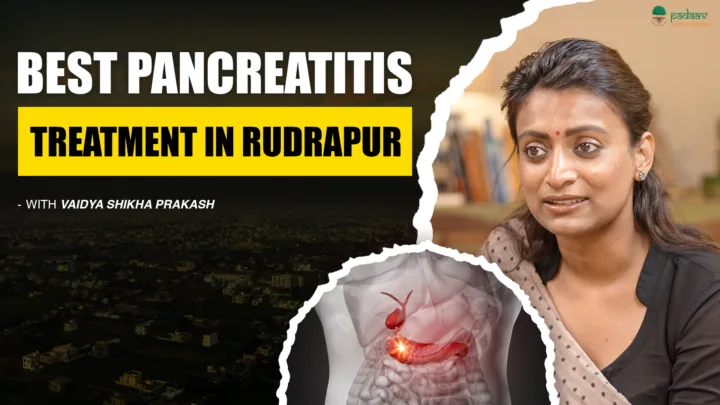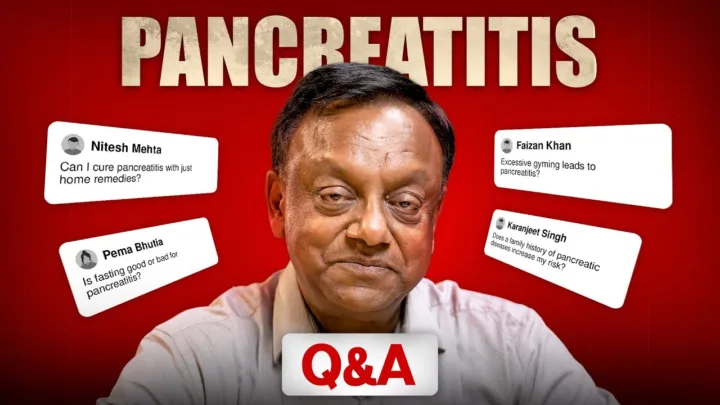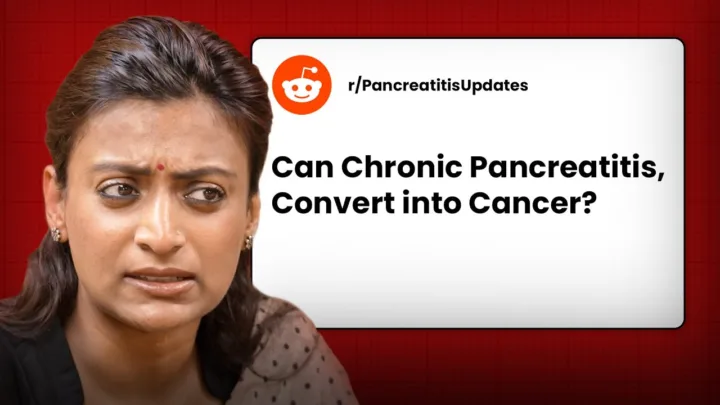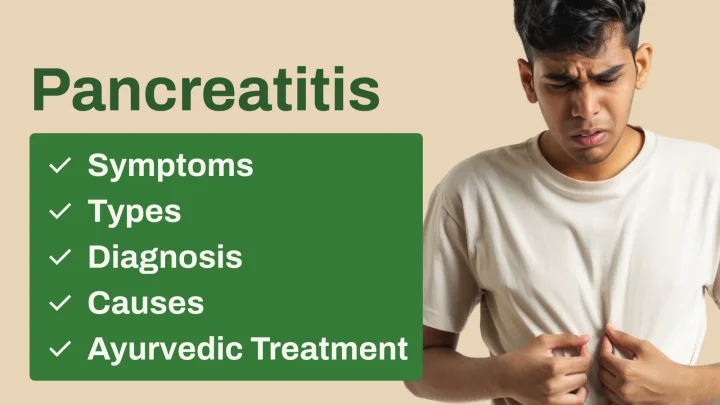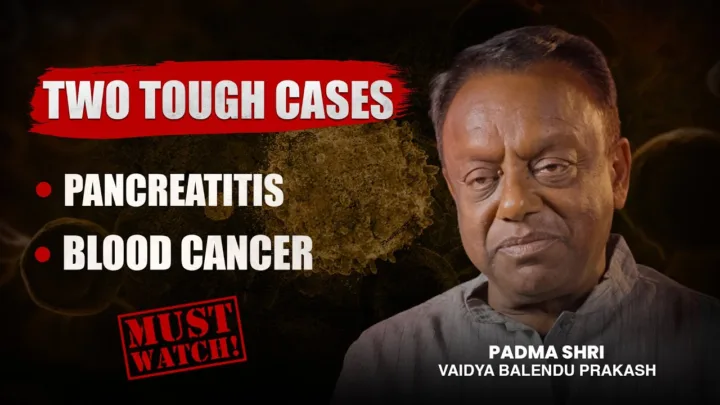Pancreatitis, a condition often characterized by severe pain and complex management, brings with it a multitude of questions for patients and their families. To shed light on these common concerns and demystify various aspects of the disease, Vaidya Shikha Prakash, CEO of Padaav Ayurveda with over 15 years of experience, shares her invaluable insights drawn from extensive clinical practice and deep Ayurvedic wisdom.
Understanding the Pancreas: Common Questions Addressed
One of the most frequent questions patients ask pertains to the role of alcohol in pancreatitis. While alcohol is a widely recognized risk factor, Vaidya Shikha Prakash notes a significant trend at Padaav Ayurveda: a majority of their cases are non-alcoholic pancreatitis. This underscores that while alcohol can be a cause, it is not the only one. For anyone diagnosed with pancreatitis, the medical guidance is unequivocal: alcohol consumption should be ceased entirely. As medical professionals, the clear recommendation is to avoid it.
Obesity and Pancreatitis: A Critical Link
Another crucial area of concern is the link between obesity and pancreatitis. Vaidya Shikha Prakash emphasizes that, as per Ayurvedic principles, both extreme thinness and extreme obesity (ati krish and atisthaulya) are detrimental to health. Maintaining a healthy body weight within one’s ideal BMI is essential. Obesity disrupts the body’s metabolism, paving the way for various metabolic disorders and significantly increasing the risk of conditions like pancreatitis. Indeed, research consistently demonstrates that obesity serves as a notable risk factor for both acute and chronic forms of the disease.
Medications, Supplements, and Pancreatitis Risk
The conversation often turns to whether medicines or supplements can induce pancreatitis. Vaidya Shikha Prakash strongly advises against self-medication. She explains that for most individuals who maintain a balanced diet, a healthy routine, and regular exercise, the need for supplements is often minimal. If supplements are deemed necessary, it is critical to consult a specialized professional or doctor rather than relying on self-prescribed or over-the-counter options. She cautions that excessive intake of certain medications, particularly painkillers, can lead to gastric and other gut-related issues. It is a well-documented fact in medical literature that a wide array of drugs have been implicated in cases of drug-induced acute pancreatitis.
Pancreatitis Across Age Groups
Regarding the typical age group affected by pancreatitis, Vaidya Shikha Prakash shares that her clinical experience suggests it is most prevalent in middle-aged individuals, often aligning with what might be considered the youth demographic. However, there’s a growing observation of cases even in young children. From an Ayurvedic perspective, pancreatitis is considered a Pitta disorder, and since Pitta imbalances are most prominent during youth, it is indeed more characteristic of this age bracket.
Smoking and Pancreatitis: A Direct Connection
The topic of smoking and its connection to pancreatitis is also frequently raised. Vaidya Shikha Prakash is resolute: smoking is universally harmful to health. She firmly advises against it for anyone, irrespective of a pancreatitis diagnosis. This stance is well-supported by evidence: scientific studies have conclusively identified smoking as an independent risk factor for both acute and chronic pancreatitis.
Understanding Pancreatitis Recurrence
A common concern among patients is whether pancreatitis is a recurring disease. Vaidya Shikha Prakash clarifies that the disease can manifest in different ways. Some cases are self-limiting, occurring once and never returning. However, a significant number of patients experience a recurrent tendency, leading to repeated attacks, which is clinically known as recurrent acute pancreatitis. Thus, it can indeed be a chronic, recurring condition for many.
Beyond Pain: Other Pancreatitis Symptoms
Beyond the hallmark abdominal pain, patients often inquire about other common symptoms of pancreatitis. Vaidya Shikha Prakash outlines that besides severe pain, individuals frequently experience vomiting, nausea, significant and unexplained weight loss, and a marked inability to digest food properly.
Managing Pancreatitis: Preventing Pain and Complications
For those seeking to prevent pain during pancreatitis, practical advice centers on strict adherence to dietary restrictions, avoiding all forbidden foods. Crucially, ensuring adequate sleep is paramount, as sleep deprivation can exacerbate gastritis and pain. Patients are also advised to prioritize rest, avoid strenuous physical activity, long journeys, or lifting heavy weights. Vaidya Shikha Prakash points out that scientific journals have highlighted a correlation between physical exertion and the onset of pancreatitis attacks.
Finally, the presence of fever during pancreatitis attacks is a frequently asked question. Vaidya Shikha Prakash confirms that fever can be a common finding, particularly during severe pancreatitis attacks. This is often indicative of associated inflammation, infection, or other complications, typically accompanied by elevated inflammatory markers such as CRP, amylase, lipase, and TLC (total leukocyte count). Fever might also signal complications like effusion, fistula formation, or a pseudocyst that requires drainage. In such instances, persistent or evening fever may necessitate antibiotic support, always under the vigilant care of a gastroenterologist.
Embracing a Lifelong Approach to Pancreatitis Management
Vaidya Shikha Prakash underscores that while pancreatitis brings pain, attacks, and potential hospitalizations, true healing extends beyond merely addressing symptoms. Neither ignoring the discomfort nor focusing solely on internal damage is the correct path. The emphasis must always be on successfully and comprehensively managing the condition.
This involves diligently adhering to dietary guidelines, adopting appropriate lifestyle habits, and consistently taking prescribed medications. These practices should become an integral part of one’s daily life. Just as individuals with heart or liver conditions manage their health proactively, a pancreatitis patient must also continuously follow precautions and engage in self-care. Prioritizing one’s health is paramount to leading a fulfilling life.
Padaav Ayurveda’s foundational principle perfectly encapsulates this philosophy: “Swasthasya Swasthya Rakshanam” (protecting the health of the healthy) and “Aaturasya Vikara Prashamanam” (alleviating the disease of the ill). The foremost duty is to safeguard existing health. Should illness arise, every necessary measure be it through diet, lifestyle modifications, or appropriate medication must be embraced to regain health and continue living a vibrant life.

